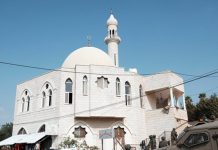
Yeye Issoufou has joined pro-coup demonstrations in Niger three times since members of the presidential guards seized power in the West African country on July 26.
Numbering in their hundreds, the crowds have marched through the streets of Niger’s capital, Niamey, singing songs and waving placards hailing the country’s self-declared new leader Abdourahmane Tchiani. They booed “imperialist France” as well as the Economic Community of West African States (ECOWAS), which has threatened to intervene militarily and restore deposed President Mohamed Bazoum.
Issoufou, who works at Aghrymet, a climate institute in the capital, is frustrated by insecurity, corruption and a worsening economy in landlocked Niger. The country is battling armed groups linked to al-Qaeda and ISIL (ISIS) and is among the poorest in the world.
“They [France] have been exploiting uranium here for almost 63 years but we don’t have a dam that can produce electricity for Niger,” he said of Niamey’s former colonial ruler.
“We have hopes that the military regime will make Niger better because of the way they have communicated to the people. They said they have established other strategies to grow our economy.”
The coup in Niger makes the country the fifth in West Africa – after Mali, Guinea, Burkina Faso and Chad – whose government has been toppled by its military since 2020.
International condemnation has been swift and harsh, particularly from ECOWAS, which has imposed a host of sanctions against Niger, including a no-fly zone and border closures. Neighbouring Nigeria, which supplies 70 percent of Niger’s electricity, has also cut off the power supply, plunging the 25-million-strong population into darkness.
The regional bloc also gave Niger’s military a one-week ultimatum to reinstate Bazoum, by August 6, or risk military intervention.
Source: Aljazeera.com








